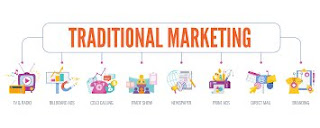The Power of SEO in Digital Marketing: Strategies That Work
The digital age has transformed how businesses operate and reach customers. In today’s online-driven world, having a strong web presence is no longer a luxury, it’s a necessity. But simply having a website isn’t enough. To thrive in the competitive digital landscape, you need a three-pronged approach: website development, website management, and digital marketing.
This blog post serves as your guide to building your
digital empire. We’ll delve into each of these crucial aspects and explain how
they work together to attract, engage, and convert your target audience.
Website Development: The Foundation of Your
Online Presence
Website development is the process of creating your
website. It encompasses everything from planning and design to coding and
functionality. Here’s a breakdown of the key elements involved:
Planning and Design: This initial
stage involves defining your website’s goals, target audience, and overall
brand identity. Here, you’ll determine the site’s structure, navigation, and
visual elements that resonate with your brand.
Development: This is where the
technical magic happens. Developers translate the design plans into a
functional website using programming languages like HTML, CSS, and JavaScript.
Content Creation: Engaging and
informative content is vital for attracting and retaining visitors. This stage
involves creating website copy, product descriptions, blog posts, and other
content relevant to your audience.
Responsiveness: In today’s
mobile-first world, ensuring your website adapts seamlessly to different
devices (desktops, tablets, smartphones) is crucial.
Website Management: Keeping Your Digital Home
in Top Shape
Once your website is launched, the work doesn’t stop
there. Website management is the ongoing process of maintaining, updating, and
optimizing your website for optimal performance. Here are some key aspects of
website management:
Security Updates: Keeping your
website’s software and plugins updated is crucial for security. Regular updates
patch vulnerabilities that can make your website susceptible to cyberattacks.
Content Updates: Fresh and relevant
content is essential for user engagement. Regularly updating your website with
new information, blog posts, and product offerings keeps visitors coming back.
Performance Monitoring: Tracking your
website’s performance helps identify areas for improvement. Tools like Google
Analytics provide valuable insights into website traffic, user behavior, and
conversion rates.
Backup and Recovery: Unexpected technical glitches can occur. Regularly backing up your website’s data ensures you can recover information in case of emergencies.
Digital Marketing: Attracting Visitors and
Converting Leads
Now that you have a robust website, it’s time to drive
traffic and convert visitors into paying customers. This is where digital marketing
comes in. Digital marketing encompasses various online strategies to promote
your website and brand across the digital landscape. Here are some key digital
marketing channels:
Search Engine Optimization (SEO): SEO
involves optimizing your website content and technical aspects to rank higher
in search engine results pages (SERPs). This increases the organic visibility
of your website when people search for keywords relevant to your offerings.
Search Engine Marketing (SEM): While
SEO focuses on organic traffic, SEM involves paid advertising through search
engines like Google Ads. You can create targeted ad campaigns to reach
potential customers actively searching for products or services like yours.
Content Marketing: Creating valuable
and informative content (blog posts, videos, infographics) establishes your
brand as an industry thought leader. This attracts organic traffic, builds
trust with potential customers, and positions you as an authority in your
field.
Social Media Marketing: Social media
platforms provide excellent opportunities to connect with your target audience.
By consistently posting engaging content and interacting with your followers,
you can build brand awareness and drive visitors back to your website.
Email Marketing: Building an email
list allows you to nurture leads and connect with potential customers directly.
Regularly sending out informative emails with promotions and special offers can
encourage conversions.
The Powerful Synergy: How They Work Together
Website development, website management, and digital
marketing are not isolated entities. They function best when strategically
integrated to achieve your online goals. Here’s how they work together:
A well-developed website with a strong foundation
provides the platform for your digital marketing efforts. SEO optimization
becomes more effective, and user engagement with digital marketing campaigns
improves when the website itself is user-friendly, visually appealing, and
offers a seamless experience.
Effective website management
ensures your website is always up-to-date and functioning optimally. This
directly impacts your digital marketing efforts, as search engines favor secure
and well-maintained websites in their rankings. Fresh content also fuels your
content marketing strategy and attracts organic traffic.
Digital marketing drives traffic to your website, but a well-managed website is crucial for converting that traffic. Clear calls to action, a user-friendly interface, and informative
.jpg)

.jpg)
.jpg)
.jpg)

Comments
Post a Comment